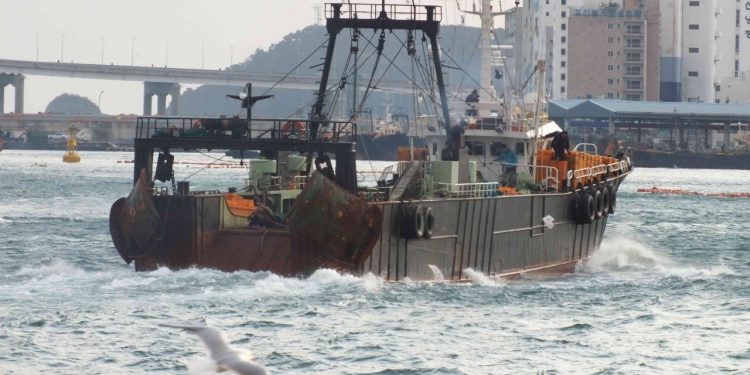Korea has made real progress in improving conditions for migrant seafarers working on its distant-waters vessels. But while this is seen as a positive step, more is needed to achieve the full systemic progress needed, according to the Environmental Justice Foundation (EJF).
The Korean government’s Plan for Further Enhancement for Working Conditions of Migrant Fishers on Distant Water Fishing Vessels was revealed in March, following four months of joint consultation with civil society and the fishing industry.
This aims to enhance human rights protections on board the Korean distant water fishing fleet by introducing a maximum voyage length of 12 months, obliging Korean companies to cut their contracts with recruitment agencies that deduct crews’ salaries and setting up an online portal for crew to check their rights and report violations.
The scope of prohibition of passport seizures is also extended. Vessel owners were previously banned from taking fishermens’ passports, and the same now explicitly applies to anyone, including owners, skippers, other crew or agencies. The government has also agreed to keep civil society involved in the implementation and monitoring of the Plan, including labour inspections.
EJF states that all these commitments will improve transparency in fisheries governance, driving progress towards sustainable, legal and ethical seafood supply chains, and further states that the Korean government needs to take a further step to systematically improve human rights at sea and to embed this into national legislation.
The International Labour Organization Work in Fishing Convention (ILO C188) provides governments around the world with a legal framework to ensure decent working conditions on fishing vessels. EJF points out that so far, 21 countries including Thailand and Spain have ratified it, and Taiwan has incorporated it into national legislation.
‘Korea, as the world’s fourth largest DWF nation with 4248 migrant fishers across the fleet, should also ratify it and ensure sufficient resources to implement it,’ an EJF representative said.
‘The Plan is currently neutral on this, saying that The ratification of the Convention will be considered upon consultation with stakeholders such as the fishing industry and cooperation for phased application of the Convention will be sought.’
According to EJF, as well as the weak legal status of the Plan, it also lacks measures to address wage discrepancies, under which migrant crew are paid significantly less than equally experienced Korean colleagues, and to ensure crew work reasonable hours when at sea.
EJF’s argument is that the recruitment process for migrant crew should be more transparent and better monitored, to enable the Korean Government to accurately oversee this complex, cross-border movement of workers.









